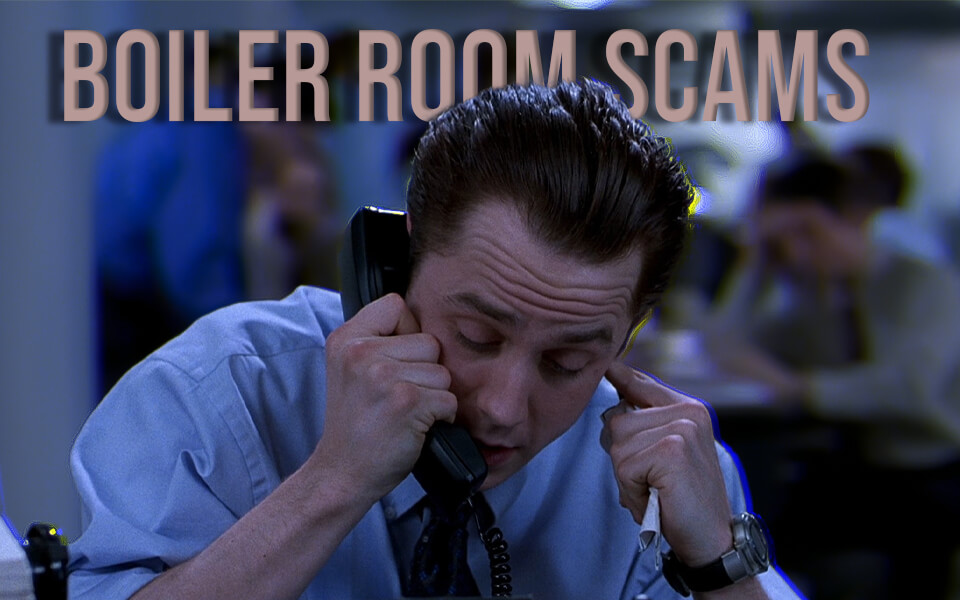


Boiler Room Scam are quite frequent and have been going on for a really long time. In the 1990s, the boiler room was quite popular, as they used their aggressive tactics to lure people into their scam and make them invest as much as they could in one go.
In the 1990s, many people were aware of the scams, and they spread like wildfire, defrauding millions of people through their marketing tactics and enticing millions through them.
In this scam, they were made to invest in the shares promoted by the fraudster, and the owner of the boiler room or the affiliated person would have purchased a large amount of shares. By aggressively promoting the shares in the market, they pump and dump the shares and gain all the profit. Let’s understand more about boiler rooms and how they operate.
Boiler rooms are nothing but a call center where salespeople have a list of investors or potential investors whom they target and try to sell the shares to. The salespeople put immense pressure on the investors by mentioning only positives about the stocks and making them feel “fear of missing out.”
They use “opportunities like this happen once in a lifetime” and other phrases to make people fall for the scams. The term boiler room is used because of the aggressive tactics used by the salespeople in this heavily crowded place under immense pressure. Most of these boiler rooms are located in the basement.
The salesperson from the boiler room often makes investors overspend on shares or securities that have quite low values. These high-pressure telemarketers got the tag of Boiler rooms in the 1990s, but after that, they are still in the industry with various means. Now, they send emails, text messages, and even voicemails to initiate contact.
Phone calls are still active, but they have adapted various other methods to target investors, and surprisingly, all of their methods work smoothly. Many people do invest in their scheme, and investors lose millions of dollars in a year in such a scam.
Boiler Room frauds share a lot of similarities with other investment scams. If you are aware of the scam and think straight, they can still pressure you to buy shares, but you have to resist and ignore them. Still, there are many investors who get convinced by their scheme and start investing. Salespeople from boiler rooms use many tactics to lure investors; listed below are some of the methods used by them.
The unethical sales tactics used by the fraudster caused huge losses in the 1990s, and boiler rooms gained popularity during that period. Many books, articles, and news channels covered the scam, and along with that, many movies were made about it. But over time, they have adapted to the changes and developed their techniques; here are some recent examples.
Winding up the article, I hope you have learned enough about boiler room scams through this article that it will help you ignore such enticing offers in the future. Con artists will never stop reaching their so-called potential investors, which they quote as “sucker lists.” If you receive messages or calls for investment and have any suspicions about the scam, you can directly reach out to law enforcement for further guidance.
Victims who are all suffering because of the boiler room scams can reach out to Zecoup to get proper assistance in fund recovery.
According to the Securities and Exchange Commission’s Rule 10b5, the tactics used by the Boiler rooms are restricted and forbidden.
After the burst of the dot-com bubble, many boiler rooms disappeared in the 1990s, but many of these firms are still operating across the globe.
If you’ve been a victim of boiler room scam, don’t despair. Contact Zecoup today to explore your options for recovering your funds and receive expert guidance to safeguard your investments in the forex market
